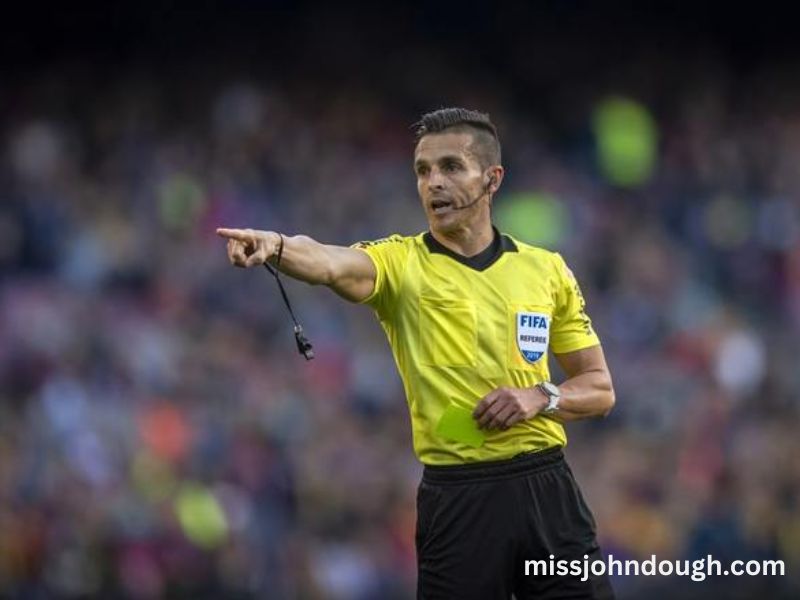Game officials are an essential component of team sports. They maintain the integrity of the game, ensure fair play, and enforce rules that contribute to the safety and enjoyment of the athletes and spectators. In this article, we will explore the major roles of game officials in team sports, highlighting their responsibilities, impact on gameplay, and the importance of their decisions. From referees to umpires, the presence of these professionals ensures that the game is played within the established guidelines, promoting a level playing field for all participants.
Introduction to the Role of Game Officials in Team Sports
Game officials are the unsung heroes of the sports world. Their presence is crucial for ensuring that competitions are fair, safe, and enjoyable for all involved. Whether in basketball, football, soccer, or any other team sport, game officials have a variety of responsibilities that keep the game running smoothly. Their role is far more than just enforcing the rules; they are also tasked with managing the game, making split-second decisions, and maintaining order on the field or court.
In team sports, officials come in many forms. Referees, umpires, linesmen, and other specialists are trained to interpret the rules and make decisions based on what they observe during a game. These professionals are responsible for overseeing gameplay, ensuring that athletes follow the rules, and ensuring safety standards are met. The decisions they make can influence the outcome of a game, making their role incredibly important.
1. Ensuring Fair Play
One of the most crucial roles of game officials in team sports is ensuring fair play. Fairness in sport means that all teams are given an equal opportunity to succeed, and officials are responsible for ensuring that no team gains an unfair advantage. They monitor the players’ conduct, call fouls when necessary, and penalize teams that violate the rules.
For example, in sports like football or basketball, referees are responsible for calling fouls or penalties on players who commit illegal actions such as holding, tripping, or pushing an opponent. By enforcing these rules, officials help maintain fairness and prevent one team from gaining an advantage through cheating or misconduct.
In sports like soccer, referees must also ensure that teams play within the spirit of the game. They ensure that players do not engage in unsporting behavior, such as diving or time-wasting, which could undermine the fairness of the game. Through these actions, game officials play a crucial role in promoting integrity and respect in sports.
2. Enforcing the Rules of the Game
Game officials are experts in the rules of their respective sports, and it is their responsibility to enforce these rules consistently throughout the game. They interpret and apply the rules impartially, ensuring that both teams are held to the same standard. For example, in basketball, referees must monitor the clock, assess fouls, and keep track of violations like traveling, double dribbling, and goaltending. In soccer, referees must ensure that the ball is in play, that offside rules are followed, and that players do not engage in dangerous tackles or reckless behavior.
Enforcement of the rules also extends to monitoring equipment and player conduct. For instance, in rugby, referees check the players’ gear to ensure it complies with safety regulations. In baseball, umpires ensure that players use appropriate equipment and that the field is in proper condition. In this way, officials act as gatekeepers, ensuring that all aspects of the game remain within the prescribed rules.
3. Managing the Game Flow
In addition to enforcing the rules, game officials are also responsible for managing the overall flow of the game. They make decisions that help maintain the pace of the game, ensuring that it remains exciting and competitive. This includes stopping the clock when necessary, managing timeouts, and ensuring that the game progresses smoothly without unnecessary interruptions.
In sports like basketball, referees are responsible for managing stoppages in play, such as when a player is injured or a timeout is called. In football, officials manage the play clock, ensuring that teams do not delay the game unnecessarily. They also make decisions on how to restart play, such as after a penalty, ensuring that the game continues without unnecessary delays.
Game officials must also manage situations where tensions arise between players or coaches. If a team becomes unruly or aggressive, officials step in to maintain order, issue warnings, or penalize those involved. This role is vital for maintaining a controlled environment where the game can proceed without chaos or violence.
4. Ensuring Player Safety
Ensuring the safety of the players is a primary concern for game officials. In every team sport, there are inherent risks of injury, and officials are responsible for monitoring the game to prevent dangerous plays and minimize the chances of injury. They have the authority to stop play if a player is injured, issue penalties for dangerous or reckless behavior, and even remove players from the game if necessary.
For example, in football, referees are vigilant about ensuring players do not engage in illegal tackles that could cause serious injury. In hockey, referees and linesmen are responsible for enforcing fighting penalties and preventing dangerous behavior like boarding or checking from behind. In sports like soccer, officials must be attentive to potential head injuries, such as concussions, and ensure that players receive proper medical attention if necessary.
Game officials are also trained to spot symptoms of injury, such as a player showing signs of dizziness or unconsciousness, and will act swiftly to stop play and call for medical assistance. Their ability to manage player safety is critical to reducing the risk of injury and ensuring that athletes can compete in a safe environment.
5. Making Split-Second Decisions
Another critical role of game officials in team sports is making split-second decisions. The pace of most team sports is fast, and officials are often required to make important calls with little time to assess the situation fully. Whether it’s calling a penalty in hockey or determining whether a goal in soccer is valid, game officials need to rely on their training and experience to make accurate decisions quickly.
This role requires officials to be highly observant and confident in their decisions. For instance, in basketball, referees must decide whether a player’s shot is a two-pointer or a three-pointer in real-time, often with no opportunity for replay. In baseball, umpires must determine if a pitch is a ball or strike in an instant, despite the speed of the game. These decisions can be crucial in determining the outcome of a match, which is why game officials are highly trained to handle this responsibility.
6. Managing Disputes and Conflict Resolution
In any team sport, there are bound to be disagreements between players, coaches, or even fans. Game officials play a crucial role in managing these disputes and ensuring that conflicts do not escalate. Whether it’s a disagreement between two players over a foul or a coach arguing with an official’s decision, referees and umpires are trained to de-escalate situations and maintain order.
Officials must maintain composure and remain neutral when handling disputes. They are trained to listen to both sides of an argument, assess the situation, and make a fair and informed decision. In cases where the conflict cannot be resolved, officials may issue penalties, eject players or coaches, or take other appropriate action to ensure the game continues in a respectful and orderly manner.
7. Assisting with Game Strategy
While the primary role of game officials is to enforce rules and maintain fairness, they also contribute to the strategic element of the game. Their decisions often have a significant impact on how teams approach the game. For instance, when a referee calls a foul in basketball, it may influence a team’s strategy regarding defense or offense. Similarly, in football, a penalty for holding can cause a team to rethink their approach to play-calling.
Officials also contribute to the overall flow of strategy by ensuring that teams have equal opportunities to execute their game plans. By keeping the game fair and orderly, they create an environment where team strategies can unfold without interference or external bias.
Conclusion
The role of game officials in team sports extends far beyond simply making calls and enforcing rules. These professionals ensure that the game remains fair, safe, and enjoyable for all participants. They manage the flow of the game, make critical decisions under pressure, and contribute to maintaining a competitive and respectful atmosphere. Without game officials, sports would not be able to function as we know them today.
Through their dedication and expertise, officials help preserve the integrity of the game, promote safety, and ensure that the competitive spirit of team sports is upheld. Their role is indispensable, and their decisions shape the outcome of games, influencing both the athletes and the fans. Whether on the field, court, or ice, game officials are essential to the smooth operation and fair conduct of team sports.


